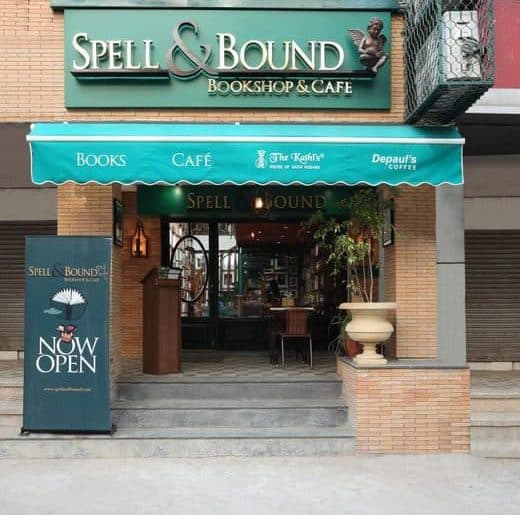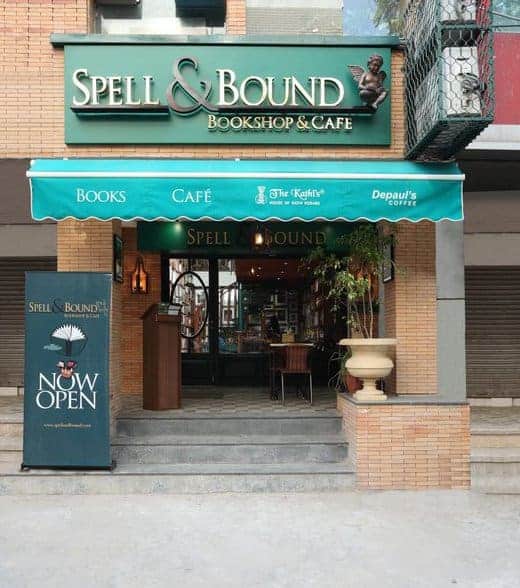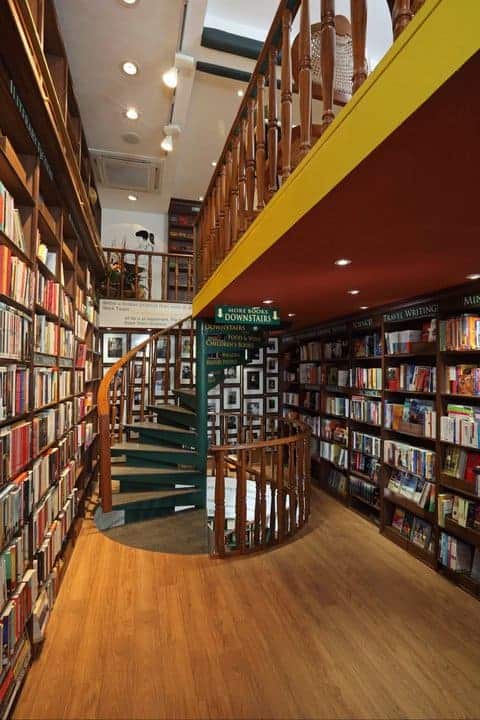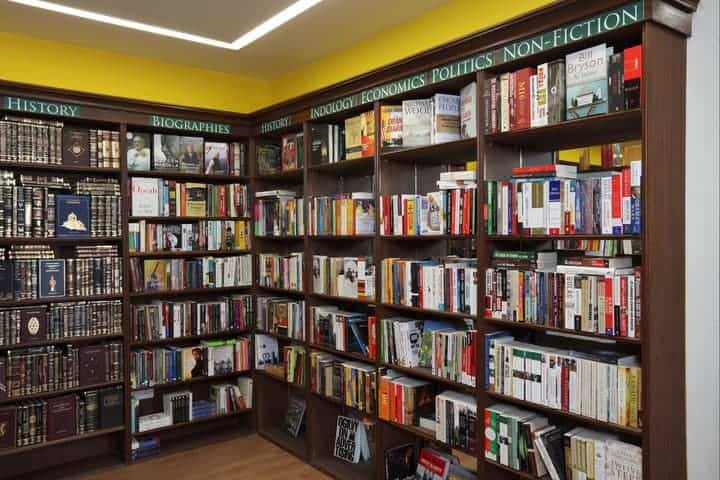The musky smell of crisp, new paper emanating from stacks upon stacks of titles sinks in the moment you enter Spell & Bound Bookshop and Café, the newest place to have moored its enticing anchor in the bustling area of SDA. With its polished wooden floors and spiral staircases, Spell & Bound radiates a cozy, old-world charm that is immensely wanting in chain bookstores today.
The store itself is tiny; with the basement and ground floor dedicated to books, while the first floor serves coffee and kathis (the latter of which deserve a paragraph to themselves, as shall duly follow!). The stock is neatly shelved according to category, lined from end to end and packed tight with titles ranging from the latest in Indian and International fiction, to prizewinners, classics, and must-reads.
From Jack Kerouac to Henry Miller, from Tina Fey to Anthony Bourdain, liberally interspersed with Graham Greene and James Joyce as well, the oeuvre of the store is admittedly massive, and it is evident that they take their reading very seriously, and many a bibliophile can be found perusing through titles at complete leisure. Not limited only to fiction, the store has an entire section dedicated to coffee table tomes, some of which include books of images from the Victoria & Albert Museum, works of iconic photographers such as Angelika Taschen and Raghu Rai, to the exclusive limited edition book of Pucci prints (published by Taschen, sold out in most other parts of the world and legendary in every way).
However, the one area where it falls short is the prices: Spell & Bound, for all its inviting warmth of teak and mahogany, and musty paper smells, unfortunately does not go too easy on the pocket. Apart from smartly dressed yuppies often seen frequenting the place, the prices of vintage complete editions of Fitzgerald and Murakami (while thrilling to touch and covet) aren’t very conducive to the average college goer’s budgets. However, that isn’t always the case as the basement does stock the cheaper Bantam, Penguin Classic and Simon & Schuster versions as well.
However, if the hardback edition of Mohammad Hanif’s Our Lady of Alice Bhatti (Rs 499) is a bit out of range for you, despair not and head to the first floor instead to sink the distress into the absolutely delicious kathis served there. With quirky Delhi-inspired artwork on the wall, and the prices almost reasonable (before the vat kicks in), it’s usually flocked with people furiously discussing their downstairs purchases with the gusto only someone who reads is capable of.
C-11, Shop No 2, SDA Market, Opposite IIT Main Gate, New Delhi, India 110016
Iva Dixit
[email protected]




